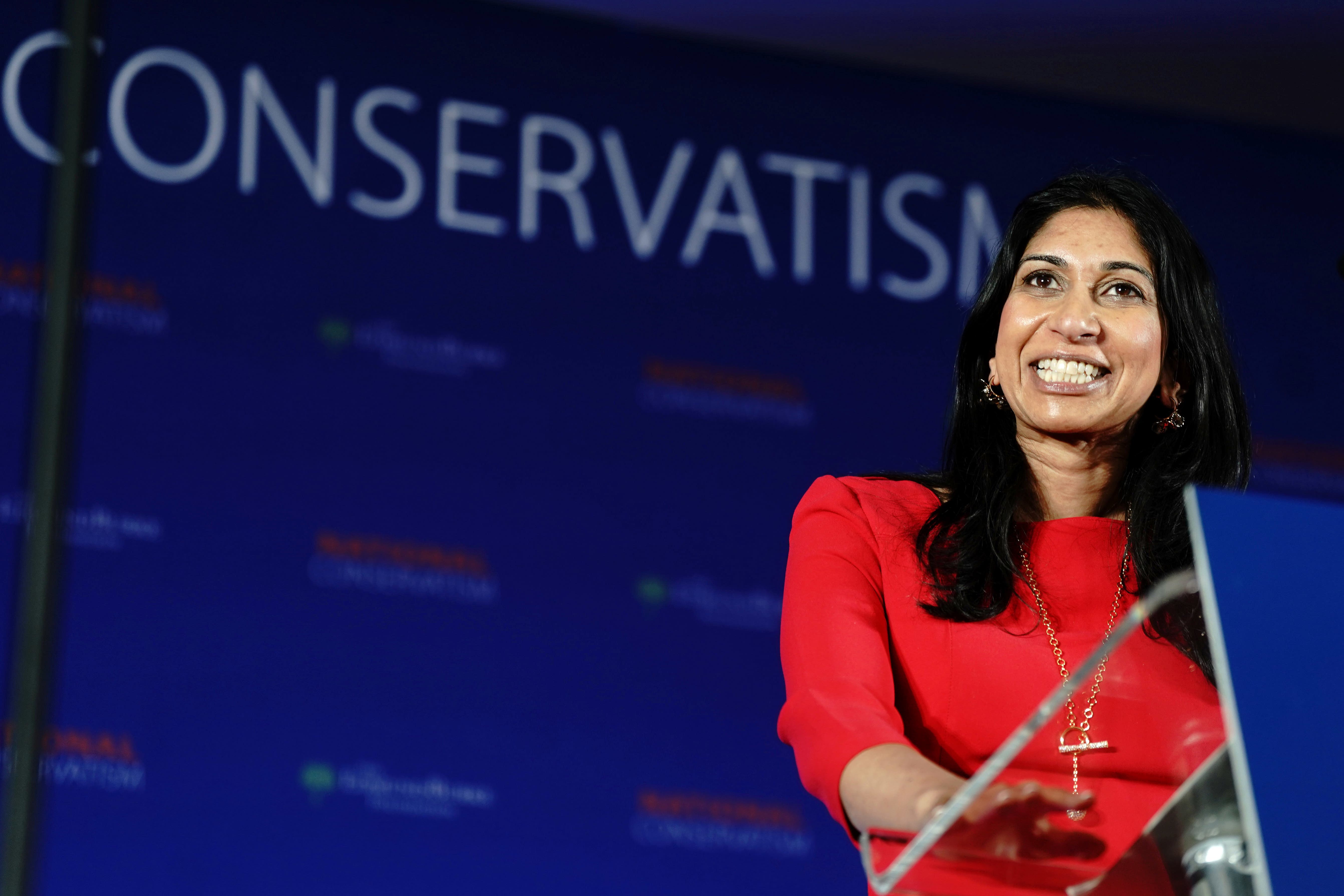What did Suella Braverman do and why has she been spared an independent probe?
The PA news agency looks at some of the key questions surrounding the Home Secretary’s conduct.

Suella Braverman has avoided an independent investigation into her handling of a speeding offence after it was decided the matter did not amount to a breach of the Ministerial Code.
Prime Minister Rishi Sunak ignored calls to launch a formal probe after claims the Home Secretary tried to get Whitehall officials to arrange a private speed awareness course for her.
Here, the PA news agency looks at some of the key questions surrounding Mrs Braverman’s conduct.
– What accusations was the Home Secretary facing?
Mrs Braverman was accused of breaching the Ministerial Code by asking civil servants whether she could have a private speed awareness course after being caught driving over the speed limit in June 2022.
This would have been instead of a group session usually offered to motorists for minor speeding offences, The Sunday Times reported.
According to the Daily Mirror, the Home Secretary’s special adviser also repeatedly denied that she was caught speeding when a reporter put the suggestion to them last month.
She eventually admitted speeding, paid a fine and took penalty points on her driving licence.
– How has Suella Braverman responded to the accusations?
Mrs Braverman admitted in a letter to the Prime Minister that she had sought to “explore whether bespoke arrangements were possible, given my personal circumstances as a security-protected minister”.
She said she initially decided to take the course and booked a slot, but after being made Home Secretary in September she asked officials whether the group session was appropriate “given my new role”.
Mrs Braverman said officials had been contacted on her behalf for “advice” but insisted they had not been pressurised to arrange a private one-to-one course.
She decided to take the points after her special advisers raised concerns about her taking an online course because of the risk of being “covertly recorded” and other security-related difficulties posed by attending an in-person session.
The Home Secretary apologised for “the distraction this has caused” and said she regrets her conduct may have given rise to the perception that she was “seeking to avoid sanction”.
– What course of action has the Prime Minister taken?
Mr Sunak spent days mulling whether to launch an independent probe into Mrs Braverman’s conduct, prompting accusations of “dither” from opposition MPs.
On Wednesday morning he suggested the matters had been “looked at professionally” but that he had been told by his independent adviser, Sir Laurie Magnus, that further investigation was unnecessary.
The Prime Minister decided – on the basis of his discussions with Mrs Braverman and her letter to him – that the conduct did not amount to a breach of the Ministerial Code.
However, he criticised the Home Secretary’s handling of the situation, noting that “a better course of action could have been taken to avoid giving rise to the perception of impropriety”.
– What does the Ministerial Code say?
The code says ministers “must not ask civil servants to act in any way which would conflict with the Civil Service Code”.
The Civil Service Code says Whitehall officials must not “misuse your official position, for example by using information acquired in the course of your official duties to further your private interests or those of others”.
Ultimately, the decision over how to respond to accusations of a breach of the Ministerial Code lies with the Prime Minister.
Breaching the code has traditionally been a resignation matter, although Boris Johnson watered down the rules during his premiership so more minor breaches could be punished with alternative sanctions.
– What do critics say?
Opposition MPs accused the Prime Minister of weakness over his decision not to order a formal investigation.
Sir Keir Starmer asked whether Mr Sunak wishes “he had the strength to give (the Home Secretary) a career change” while Liberal Democrat chief whip Wendy Chamberlain accused him of “a cowardly cop-out”.
The decision suggests the Prime Minister is choosing to be ruled by “hardline backbenchers”, she added.
Green Party MP Caroline Lucas said there was an “obvious pattern”, suggesting Mrs Braverman is “not fit for office”, pointing to a previous breach of the Ministerial Code for which she was forced out during Liz Truss’s short-lived premiership.
Mrs Braverman was found to have broken the code by sending an official document to a Tory backbencher from a personal email address, but was reinstated as Home Secretary six days later when Mr Sunak took office.